Even in the age of mobile tech, few can deny that no laptops really offer the same comfort and utility of a desktop PC. When you’re settling in for a long day of work or a comfy evening gaming session, it’s always better to have a nice big monitor, a full-sized keyboard, and a proper mouse at your command — and that’s before you even consider the future-proofing and upgradeability that a desktop tower gives you. Building a PC is a good idea for enthusiasts, but if you’d rather skip the hassle, then you can find some great pre-built desktops right now. We’ve put together a roundup of the best desktop computer deals so you can jump right in.
Today’s best desktop computer deals
Lenovo ThinkCentre M60e Tiny PC — $467, was $1,089
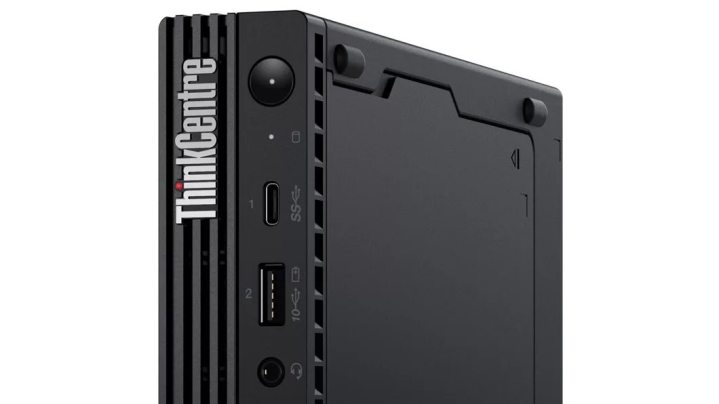
When it comes to small and medium enterprises (SMEs), space is often at a premium, which is why thin desktops like the Lenovo ThinkCentre are a great option. Under the hood, you’ll find a reasonably powerful 10th gen Intel i5-1035G1 that balances price with performance quite well and will let you do all your productivity work with ease. Similarly, the 8GBs of DDR4 RAM are great for things that love to eat up RAM, like big Excell sheets and other things that deal with lots of data, and upgrading the RAM is relatively easy if you have a bit of tech-savvy. The ThinkCentre also comes with Windows 11 64-bit version and 256GBs of storage, the latter of which is slightly on the lower end, but again, it’s an easy upgrade if you have a bit of tech-savvy.
HP Pavilion Desktop PC — $550, was $750
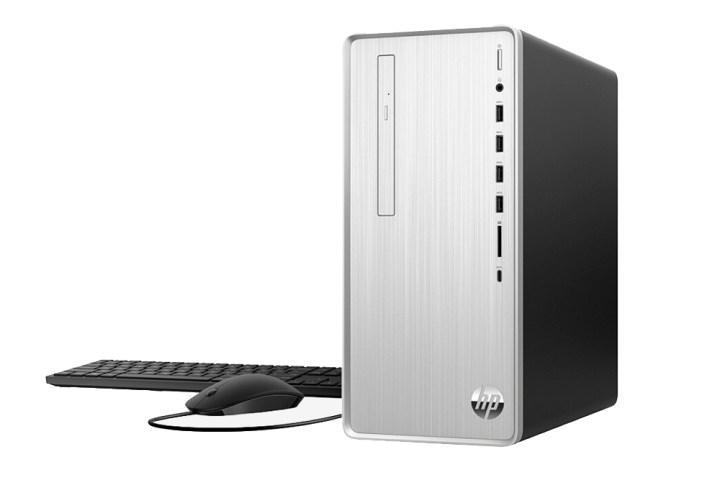
If you don’t want to spend time upgrading your desktop and don’t mind using up a little bit of extra space, the HP Pavilion is a great option. Rather than the usual Intel, it runs a mid-tier yet powerful AMD Ryzen 5 5600G processor, as well as 16GB of RAM, which is more than enough for most business consumers. Similarly, you get a lot more storage, with a 256GB SSD and a massive 2TB HDD, which is great if you tend to work with a lot of larger files. It’s also worth noting that it has both a network interface and Wi-Fi 5, so connectivity shouldn’t be an issue. Even better, HP throws in a keyboard, so you don’t have to spend that extra money, although we still encourage you to take a look at some wireless keyboard deals to help cut down on wire clutter.
Dell Inspiron Desktop PC — $800, was $920
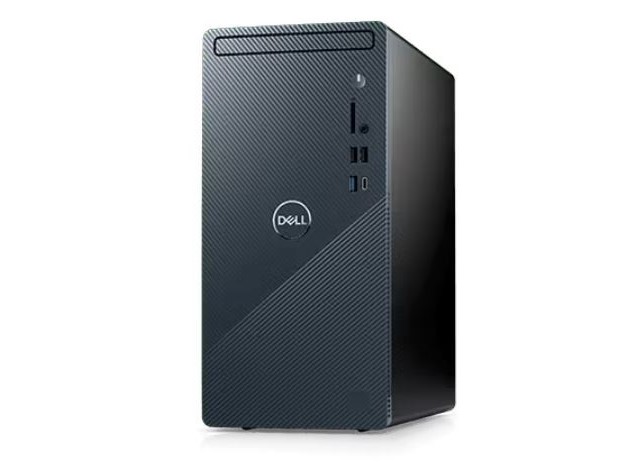
With more processing power than your average business and school desktop, the Inspiron is great for CPU-heavy applications, such as editing work. It comes with the latest 13th Gen Intel i7-13700 and Windows 11, so it has all the bells and whistles you can expect. Of course, it doesn’t come with any sort of GPU, but there is the included Intel UHD Graphics 770, which can handle some basic gaming and graphical work if you need it. You also get 16GB of RAM and 512 GB of storage, both of which are more than enough for the average user. Dell also throws in Wi-Fi 6, so you’re relatively future-proofed and get a good connectivity experience, which is important if you’re streaming data such as a Zoom call. Much like the Pavilion, Dell includes a free keyboard, although it’s always worth grabbing a wireless one or even a branded wired keyboard.
Alienware Aurora R13 Gaming PC — $1,200, was $2,170
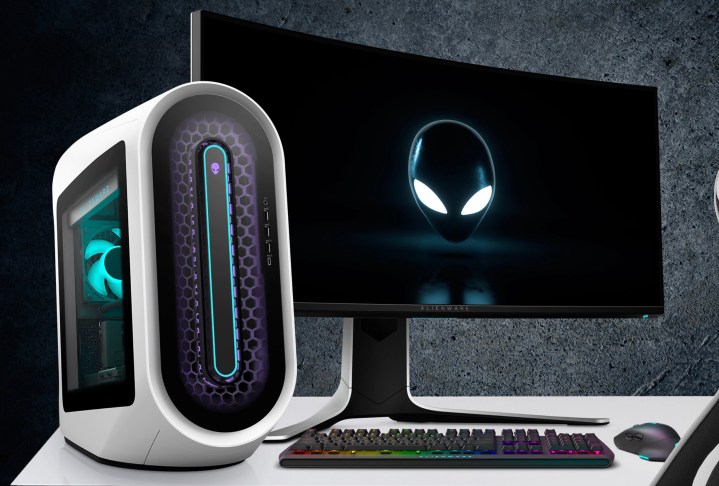
Of course, if you’re looking to do some gaming, you can’t go wrong with the Alienware Aurora R13, a staple in the gaming PC market. It comes with a surprisingly powerful RTX 3060, which is a great card for running FHD resolutions at higher refresh rates or potentially even 1440p at lower refresh rates and graphical settings, depending on what’s important to you. Either way, you can take advantage of most monitor deals, so we appreciate the versatility. Besides that, you get the same powerful 12th gen Intel i7-12700F, an absolutely massive 32 GBs of DDR5 RAM, the fastest on the market, and a very respectable 1TB SSD. Put that all together, and you get a very powerful PC with a great deal on it that gives it excellent value.
Legion Tower 7i Gaming PC — $1,472, was $2,300
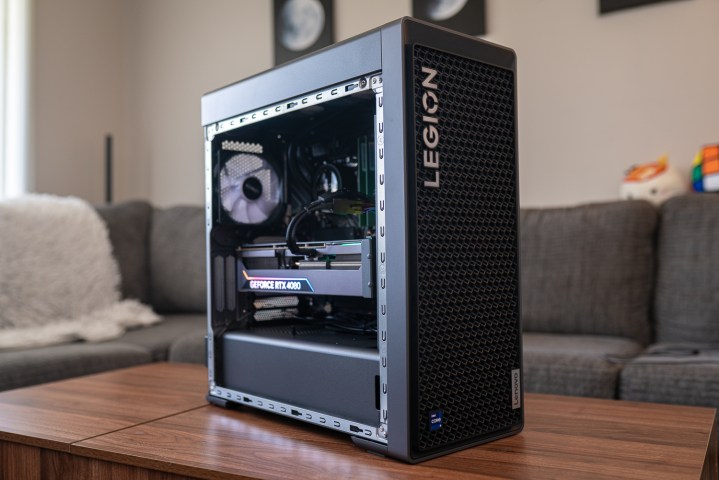
While the RTX 3060 is great, it’s still a budget-oriented GPU, so if you want a bit more power, the Legion Tower 7i can certainly deliver with its RTX 3070. Not only does it have more power, but it can more easily handle 1440p gaming, which is a relatively good resolution to aim for without having to pay thousands in gear to go up to 4k. Besides that, you get a powerful 12th gen Intel i7-12700K and 16GB of DDR5 RAM, as well as a whopping 1TB SSD NVME, so it’s going to be blazing fast. Legion includes a keyboard in the bundle, but really you’ll want to grab one of these better gaming keyboards and gaming mice. Legion also includes Wi-Fi 6E for better connectivity performance, so if you want to play online, you won’t get as much latency or lag as you would with an older version of Wi-Fi.
How to choose a cheap desktop computer
After setting your budget, it’s time to decide what exactly you’re looking for in a good cheap desktop computer. First, is this PC going to be primarily for work and general daily use, primarily for gaming, or a fairly even split between these? This will naturally determine what sort of specs you’re looking at — such as, for instance, whether you need a discrete graphics card or not — but the good news is that in the sub-$1,000 category, you can find many good desktop PCs packing solid up-to-date hardware that won’t be outdated within two years.
Another important consideration is peripherals. What monitor (or monitors) is your desktop computer going to be connected to? Do you already have a mouse and keyboard; if not, do you want a desktop PC that comes with these included, or do you plan to buy nicer ones separately? Bear in mind that while many desktop towers come with accessories, you’ll still need to decide how much you’re budgeting for things like a mouse , a keyboard, a monitor, mouse pad, speakers, and other peripherals you might need.
The bottom line is this: Don’t merely look at the price and basic hardware specs when shopping for a cheap desktop computer. Set your budget, know exactly what features you want (write this down if you need to) and then work from there.
What makes a good cheap desktop computer?
When shopping for any sort of cheap computer, be it a laptop or desktop PC, the biggest risk you’ll face is ending up with something that is running on outdated hardware (or hardware that will be outdated very soon). This is what happens when you consider only the price and don’t familiarize yourself with the current state of computer hardware. Thankfully, there’s not too much to remember.
First, when looking at CPUs, it’s best to stick with 11th- and 12th-generation Intel Core processors and AMD Ryzen (also known as “Zen”) processors, as these are more recent and will keep your system – even a relatively basic one – reasonably “future-proof.” We also suggest a minimum of 8GB of RAM unless you’re sailing into sub-$300 waters and 16GB is even more strongly recommended for something like a gaming desktop. Finally, solid-state drives (now common even on cheap computers) are generally preferable to traditional hard drives. These SSDs are generally more reliable and considerably faster than old-school HDDs, although they offer less storage space per dollar.
Are cheap desktop computers good for gaming?
Any PC packing an up-to-date CPU, GPU, and SSD (or at least a 7,200rpm HDD) should be good to go for gaming, and there are plenty of good cheap desktop computers that fit this bill nicely. Along with the processors we mentioned, modern graphics card generations include Nvidia’s 16- and 30-series cards, although you’ll most likely be sticking with the GTX 16-series GPUs in the sub-$800 price bracket. These replaced Nvidia’s 10-series cards as entry- and mid-level GPUs, and while there are still PCs with those older cards floating around, we don’t recommend them.
AMD’s Radeon family of budget-tier graphics card includes the RX 5000 series, with GPUs like the RX 5500 offering good performance capabilities for 1080p gaming. The RX 6000 series GPUs are better for higher-end gaming. You’re not likely to achieve 4K or even 1440p gaming with most cheap desktop computers, but that is a sacrifice you make for keeping costs down. Also, remember that an SSD will load games (and everything else) noticeably faster than an HDD.
Looking for more great stuff? Find tech discounts and much more on our curated deals page.
Editors’ Recommendations



